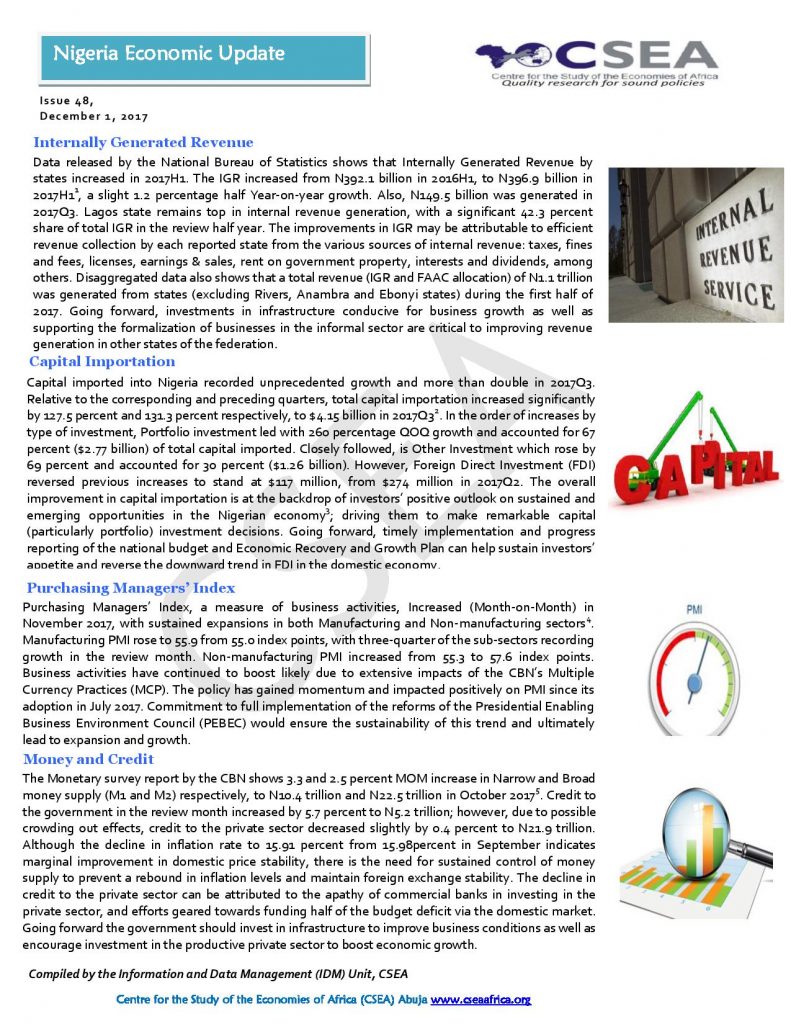Macroeconomic Report & Economic Updates

December 29, 2017
Nigeria Economic Update (Issue 48)
Data released by the National Bureau of Statistics shows that Internally Generated Revenue by states increased in 2017H1. The IGR increased from N392.1 billion in 2016H1, to N396.9 billion in 2017H1, a slight 1.2 percentage half Year-on-year growth. Also, N149.5 billion was generated in 2017Q3. Lagos state remains top in internal revenue generation, with a significant 42.3 percent share of total IGR in the review half year. The improvements in IGR may be attributable to efficient revenue collection by each reported state from the various sources of internal revenue: taxes, fines and fees, licenses, earnings & sales, rent on government property, interests and dividends, among others.
